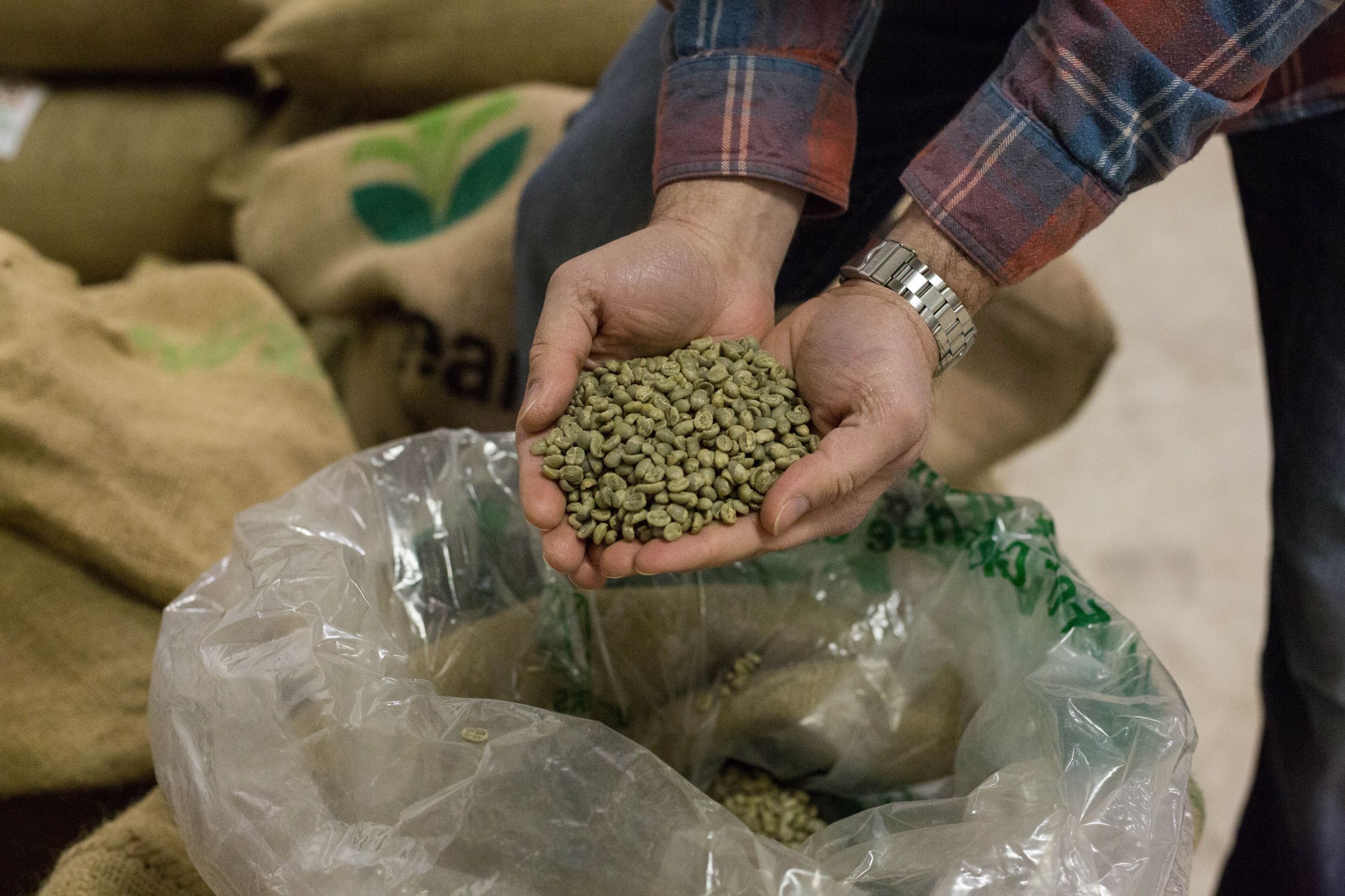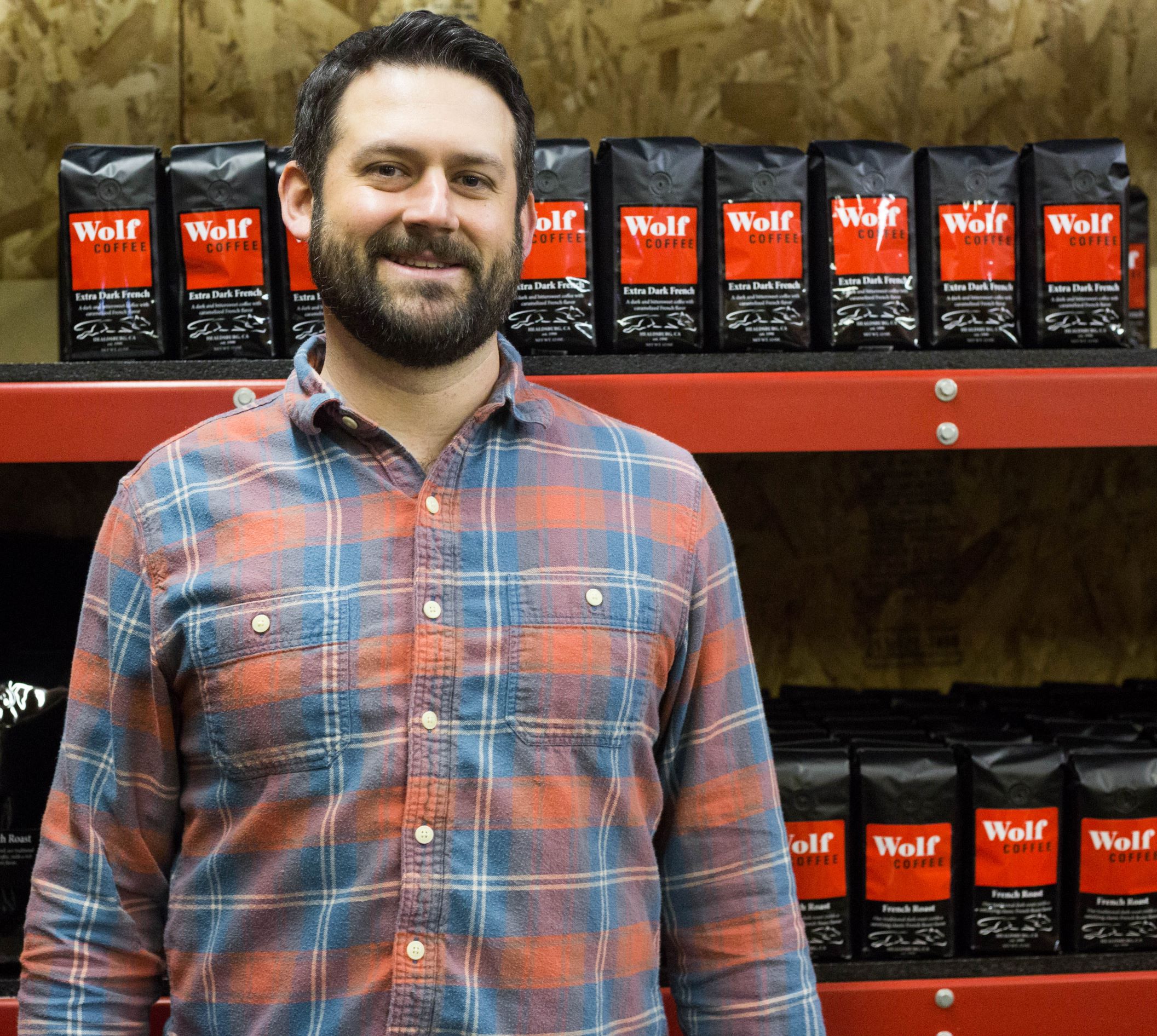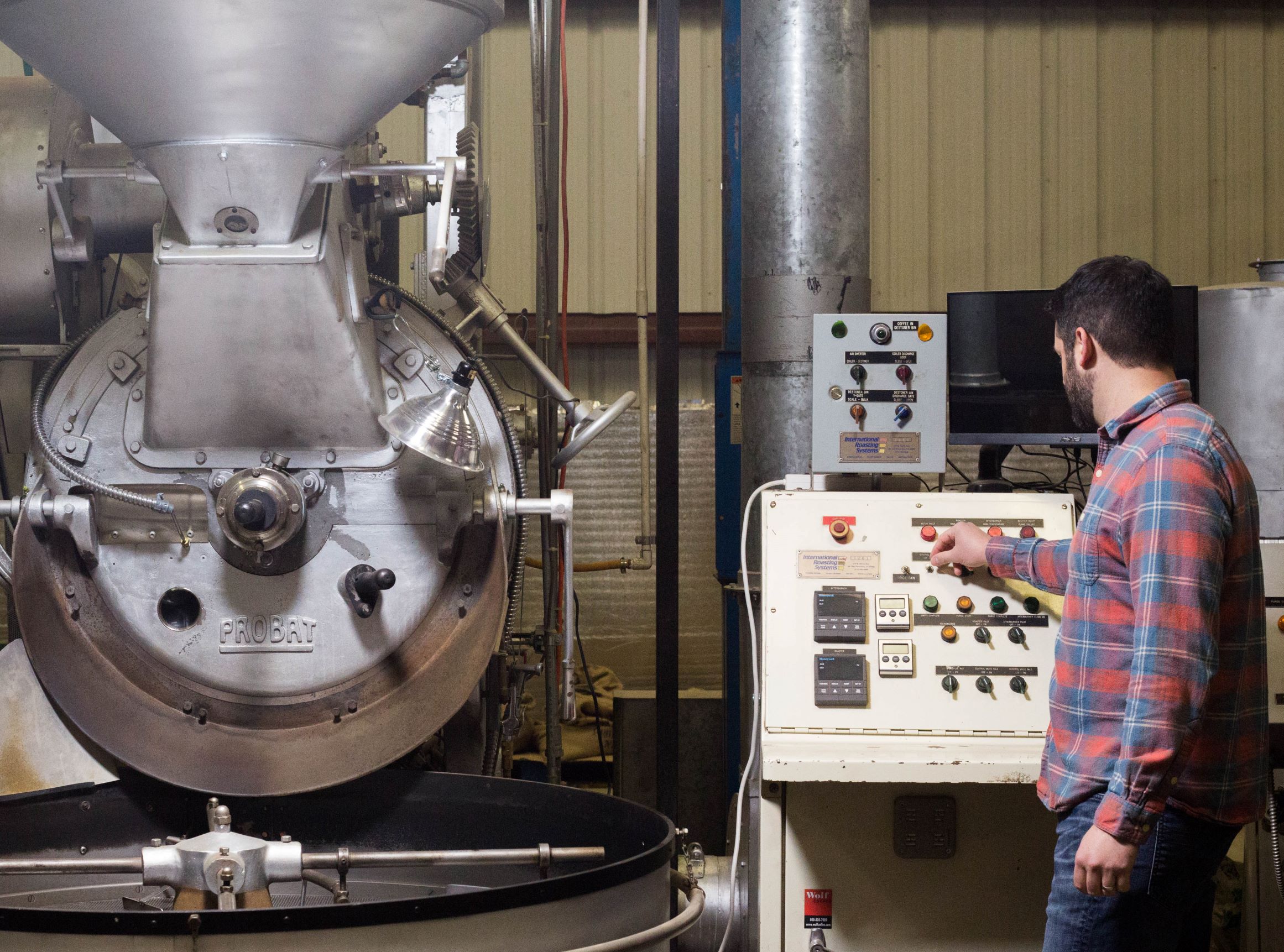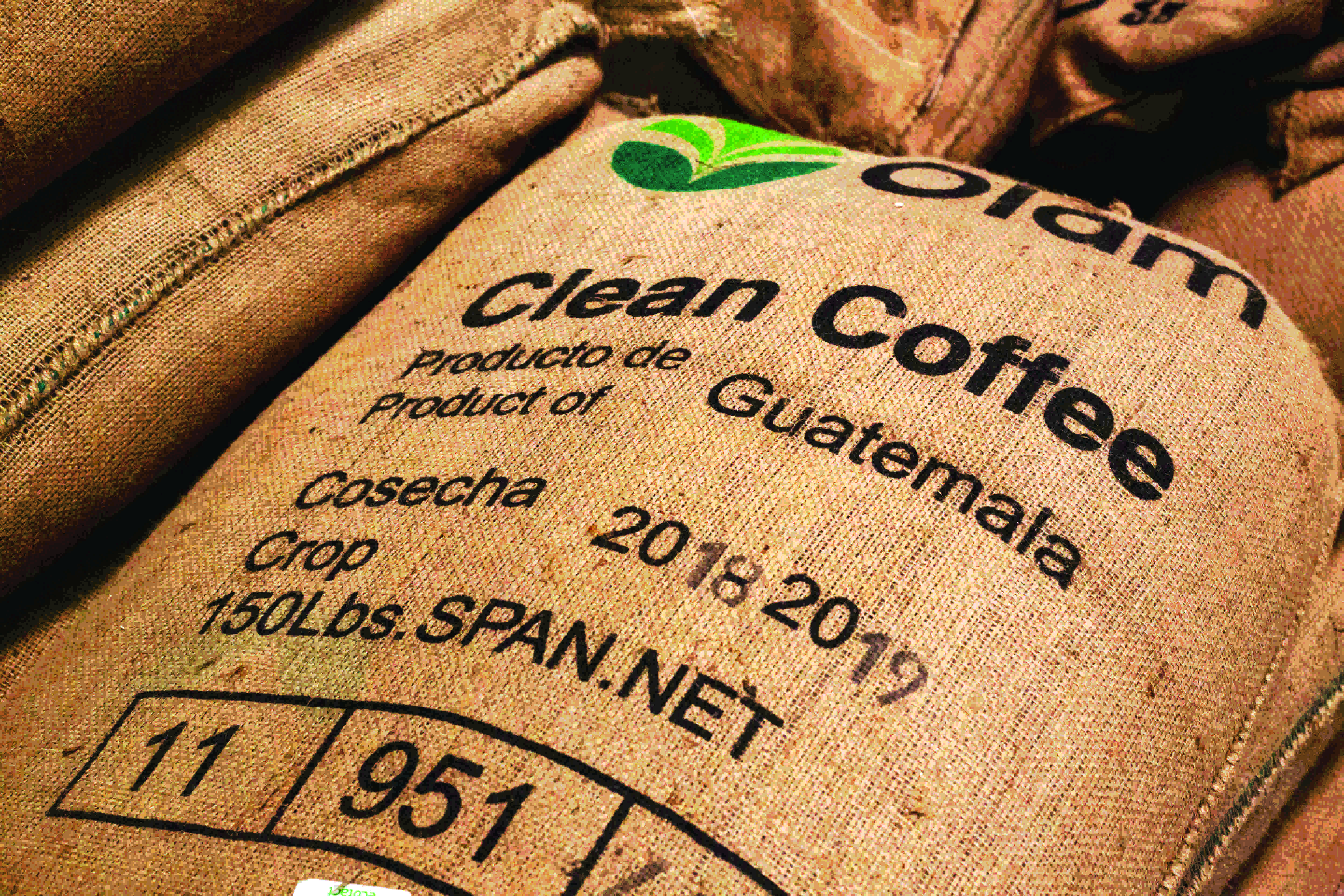Bean Bonanza
In 1991, a coffeehouse barista and an English instructor fell in love sitting at a small, round, marble table nestled inside the Wolf Coffee shop just off Mendocino Avenue in Santa Rosa. My parents still recall fondly the yummy coffee and pastries of those early dates. Eventually my mom, the barista, joined the SRJC English faculty alongside her husband and now, 30 years later, they’re still married with two grown children.
2020 also marks Wolf Coffee’s 30th anniversary, their transition to a fully organic company, and a brand-new look and logo. And while Wolf has always been making delicious wholesale coffee—available at Oliver’s Market, Big John’s Market, and Shelton’s in Healdsburg—they’re stepping it up a notch with a freshly brewed experience for Sonoma County locals and visitors alike.
In an unassuming warehouse amid the sprawling vineyards of Alexander Valley, roastmaster Nick Castelli is ready to spill the beans about Wolf Coffee. Much like the always-popular wine tasting, the county’s only coffee-specific tasting experience is a treat for all your senses.
“I love food, I love flavor, and I love pairing,” explains Castelli, who wants this experience to reveal coffee’s versatility. As he goes about creating his blends, he focuses on how these cups of coffee will taste with food. Does a darker roast beckon bacon? Does a post-dinner espresso require the darkest dark chocolate available?
Since taking over the management and roasting at Wolf Coffee, Castelli has emphasized the value of a balanced cup of coffee, one that can be as delicious on its own as it is with a meal. “For example, Wolf’s House Blend is very versatile,” enthuses Castelli, “in that it pairs seamlessly with your morning bagel, your bowl of pasta with tomato sauce, and your crème brûlée!”
“Growing coffee at higher altitudes produces a smaller yield because it is harder for the plant to thrive in the harsher climate,” explains Castelli, who draws interesting parallels between the complex processes that create both wine and coffee. All of Wolf Coffee’s beans are Arabica, a varietal of bean that grows at higher elevations and is often exposed to extreme weather. The stress of their growing environment leads to the best tasting coffee, just as the most “stressed out” grapes generally become the most delightful wines.
“It may sound counter-intuitive,” Castelli continues, “but the plant’s sugars are concentrated into a smaller quantity of fruit with a much higher complexity of flavor.” He tells me that altitudes of 3,000 to well over 5,000 feet above sea level yield the best coffees in the world—sweet, smooth, and embodying flavors like nuts, citrus, chocolate, and spices.
Wolf Coffee’s tasting experience begins with a tour of the roasting facility, the coffee roaster smack dab in the middle—a contraption that seems like it would take years to master. Relics of the old Wolf Coffee shops line one wall, including the coffee maker used by my mom back on Mendocino Avenue (the last shop shuttered in 2008).
Visitors are treated to a full understanding of coffee roasting, from the fragrant, 100 percent organic little green beans in large canvas sacks from Guatemala, Costa Rica, Ethiopia, and Sumatra to the vintage Probat roasters (known as the “Ferrari of roasters”) that Castelli swears by. The tasting ends with a traditional “cupping,” a sampling of five coffees that cover the roasting spectrum.
Tastings are $15 per person, but the fee is waived if you subscribe to Wolf Coffee. Email howl@wolfcoffee.com to reserve your spot—available on Fridays from 9 am-11 am.




